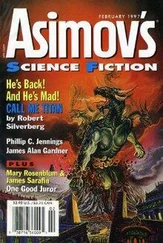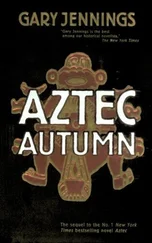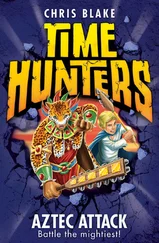Gary Jennings - Aztec
Здесь есть возможность читать онлайн «Gary Jennings - Aztec» весь текст электронной книги совершенно бесплатно (целиком полную версию без сокращений). В некоторых случаях можно слушать аудио, скачать через торрент в формате fb2 и присутствует краткое содержание. Жанр: Старинная литература, на английском языке. Описание произведения, (предисловие) а так же отзывы посетителей доступны на портале библиотеки ЛибКат.
- Название:Aztec
- Автор:
- Жанр:
- Год:неизвестен
- ISBN:нет данных
- Рейтинг книги:4 / 5. Голосов: 1
-
Избранное:Добавить в избранное
- Отзывы:
-
Ваша оценка:
- 80
- 1
- 2
- 3
- 4
- 5
Aztec: краткое содержание, описание и аннотация
Предлагаем к чтению аннотацию, описание, краткое содержание или предисловие (зависит от того, что написал сам автор книги «Aztec»). Если вы не нашли необходимую информацию о книге — напишите в комментариях, мы постараемся отыскать её.
"Anyone who reads, anyone who still lusts for adventure or that book you can't put down, will glory in Aztec."--Los Angeles Times
Aztec
Aztec
Aztec — читать онлайн бесплатно полную книгу (весь текст) целиком
Ниже представлен текст книги, разбитый по страницам. Система сохранения места последней прочитанной страницы, позволяет с удобством читать онлайн бесплатно книгу «Aztec», без необходимости каждый раз заново искать на чём Вы остановились. Поставьте закладку, и сможете в любой момент перейти на страницу, на которой закончили чтение.
Интервал:
Закладка:
I do not know if Cortés was ever afterward informed of the fact that every wealthy pochtéatl of our city had in his house—as I did—a concealed treasure chamber. He clearly did not know at that time, for his work parties toppled every house indiscriminately and haphazardly, and, in the smoke and dust of each one's collapse, no one ever glimpsed the wrapped packets or bales of gold and gems and plumes and dyes and such, which got even more invisibly buried among the rubble and were later swept aside in the island's clearance and enlargement. Of course, even had Cortés scavenged every one of the pochtéa's valuables, they would have amounted to far less than the still-lost treasury, but they would yet have made a gift to astonish and delight his King Carlos. So I watched that day's devastation with some ironic satisfaction, even though, at the day's end, I was an old man poorer than the young child I had been when I first saw Tenochtítlan.
Well, so was every other Mexícatl still alive, including even our Revered Speaker. The end came not long after that, and it came quickly when it came. We had been for countless days devoid of every commodity that could be remotely regarded as food, and our very ability to move about, even to talk to each other, was enfeebled to listlessness. Cortés and his army, as relentless and numerous and voracious as those ants that strip whole forests clean, finally reached the Tlaltelólco marketplace and began tearing down the pyramid there, meaning that we fugitives were so huddled in what little space was left to hide that we scarcely had even a place to stand in comfort. Still Cuautemoc would have stood, if he had had to do it on one foot, but, after I and the Snake Woman and some other counselors had privately conferred, we went to him and said:
"Lord Speaker, if you are taken by the outlanders, the whole of the Mexíca nation falls with you. But if you escape, the rulership goes where you go. Even if every other person on this island is slain or captured, Cortés will not have bested the Mexíca."
"Escape," he said dully. "To where? To do what?"
"To go into exile, with just your closest family and a few of your chief lords. It is true that we no longer have trustworthy allies anywhere among the lands closest to here. But there are farther countries from which you can recruit supporters. It may be a long time before you can hope to return in force and triumph, but however long it may take, the Mexíca will still be unvanquished."
"What farther countries?" he asked, without enthusiasm.
The other lords looked to me, and I said, "To Aztlan, Revered Speaker. Go back to our very beginnings."
He stared as if I were mad. But I reminded him how we had, only comparatively recently, renewed our ties with our cousins of our first homeplace, and I gave him a map I had drawn to show him the way there. I added, "You can expect a hearty welcome, Lord Cuautemoc. When their Speaker Tlilectic-Mixtli left here, Motecuzóma sent with him a force of our warriors and a number of Mexíca families skilled in all our modern crafts of city building. You may find they have already made of Aztlan a miniature Tenochtítlan. At the very least, the Aztéca could be the seed kernels—as once before they were—from which to grow a whole new and mighty nation."
It took a good deal more persuasion to get Cuautemoc to agree, but I will not relate it all, since it all went for naught. I still think the plan should have succeeded; it was well conceived and executed; but the gods decreed that it should not. At twilight, when the battle boats ceased their day-long barrage and began to turn homeward toward the mainland, a goodly number of our men accompanied Cuautemoc and his chosen companions down to the edge of the island. They all got into canoes, and at a signal the many canoes paddled into the lake, all at once but each in a different direction, moving fast, appearing to be a sudden mass scurry for safety. The acáli carrying Cuautemoc and his abbreviated court headed for the little mainland bay between Tenayúca and Azcapotzálco. Since there were few if any habitations at that spot, it was presumably unguarded by any of Cortés's camps or sentries, and Cuautemoc should easily have been able to slip inland from there and keep going northwest to Aztlan.
But the battle boats, spying the sudden eruption of acaltin from the island, turned back and began to whisk busily about among them, seeking to determine if they really were in rout. And, by ill chance, one of the boat captains was astute enough to notice that one of the occupants of one canoe was rather too richly dressed to be a mere warrior. That boat dropped iron hooks, and grappled the canoe fast to its side, and hauled aboard the Revered Speaker, and carried him straight to the Captain-General Cortés.
I was not present at that meeting, but I learned later that Cuautemoc spoke, through the interpreter Malintzin, saying, "I did not surrender. It was for my people's sake that I sought to elude you. But you caught me fairly." He pointed to the dagger at Cortés's belt. "Since I was taken in war, I deserve—and I request—the death of a warrior. I ask that you slay me now, where I stand."
Magnanimous in victory, or at least unctuous, Cortés said, "No, you did not surrender, and you have not ceded your rule. I decline to slay you, and I insist that you retain your leadership of your people. For we have much work to do, and I pray you will help me do it. Let us together build your city to a new grandeur, my esteemed Lord Cuautemoc."
Cortés probably pronounced it Guatemoc, as he always later did. I think I long ago mentioned, reverend friars, that the name Cuautemoc meant Swooping. Eagle, but I suppose it was inevitable and even fitting that, after that day—by our calendar the day One Serpent of the year Three House; by your calendar the thirteenth day of August in the year one thousand five hundred twenty and one—our last Revered Speaker's name was ever afterward translated into Spanish as Falling Eagle.
* * *
For some while after the fall of Tenochtítlan, life was not much changed in most of The One World. Outside the immediate area of The Triple Alliance, no other part of these lands had been so devastated, and there were probably many parts where the people were not yet aware that they resided not in The One World but in a place called New Spain. Though they were cruelly ravaged by the mysterious new diseases, they seldom saw a Spaniard or a Christian, so they had no new laws or gods imposed on them, and they went on with their accustomed ways of life—harvesting, hunting, fishing, whatever—as they had done through all the sheaves of years before.
But here in the lake lands, life was much altered, and it was hard, and it has never got easier, and I doubt that it ever will. From the day after Cuautemoc's capture, Cortés concentrated all his attention and energy on the rebuilding of this city—or I should say our energy. For he decreed that, since it was entirely the fault of us fractious Mexíca that Tenochtítlan had been destroyed, its restoration as the City of Mexíco should be our responsibility. Though his architects drew the plans, and his artificers oversaw the work, and his most brutal soldiers wielded the whips to make the work get done, it was our people who did the work, and we who supplied the materials, and if we would eat after our labors, it was we who had to provide the food. So the quarriers of Xaltócan worked harder than ever in their lives, and foresters laid naked the lakeside hills to cut beams and planks, and our former warriors and pochtéa became foragers and carriers of what foodstuffs and other necessities they could forcibly extort from the surrounding lands, and our women—when they were not being openly molested by the white soldiers, even raped before the eyes of all who cared to watch—were pressed into service as porters and messengers, and even small children were put to work mixing mortar.
Читать дальшеИнтервал:
Закладка:
Похожие книги на «Aztec»
Представляем Вашему вниманию похожие книги на «Aztec» списком для выбора. Мы отобрали схожую по названию и смыслу литературу в надежде предоставить читателям больше вариантов отыскать новые, интересные, ещё непрочитанные произведения.
Обсуждение, отзывы о книге «Aztec» и просто собственные мнения читателей. Оставьте ваши комментарии, напишите, что Вы думаете о произведении, его смысле или главных героях. Укажите что конкретно понравилось, а что нет, и почему Вы так считаете.











